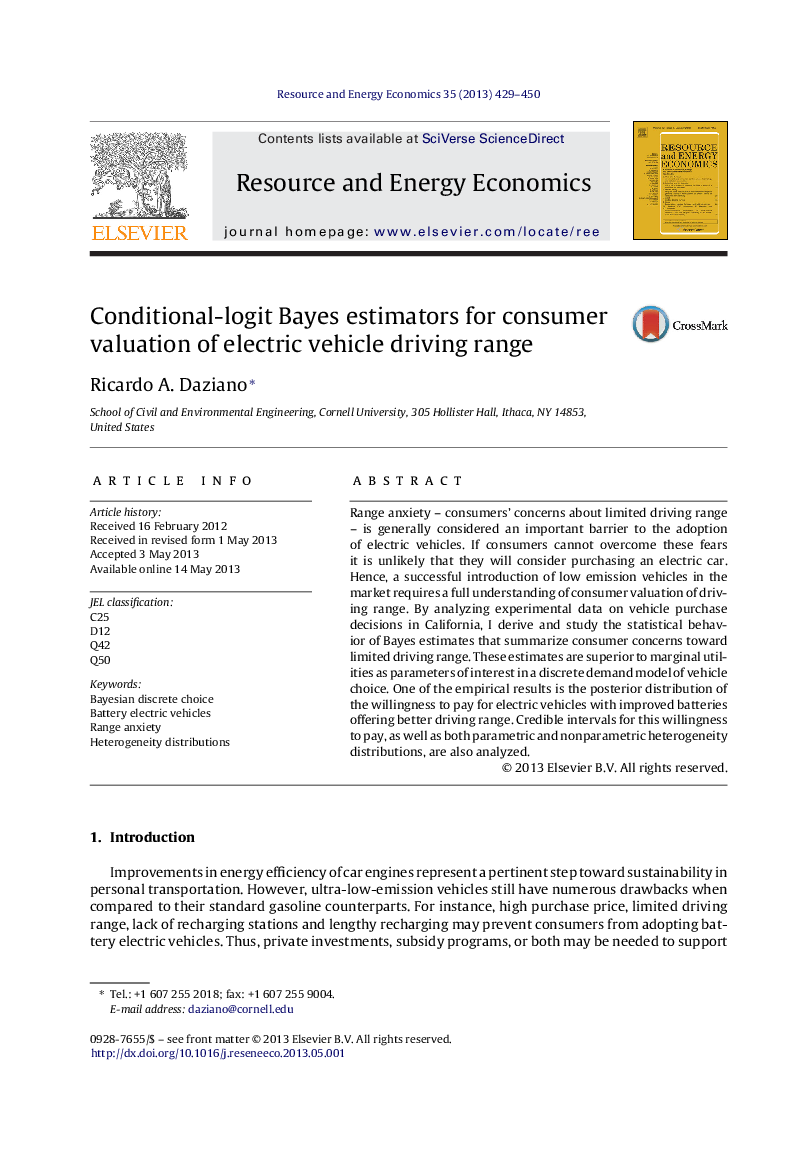| Article ID | Journal | Published Year | Pages | File Type |
|---|---|---|---|---|
| 10483417 | Resource and Energy Economics | 2013 | 22 Pages |
Abstract
Range anxiety - consumers' concerns about limited driving range - is generally considered an important barrier to the adoption of electric vehicles. If consumers cannot overcome these fears it is unlikely that they will consider purchasing an electric car. Hence, a successful introduction of low emission vehicles in the market requires a full understanding of consumer valuation of driving range. By analyzing experimental data on vehicle purchase decisions in California, I derive and study the statistical behavior of Bayes estimates that summarize consumer concerns toward limited driving range. These estimates are superior to marginal utilities as parameters of interest in a discrete demand model of vehicle choice. One of the empirical results is the posterior distribution of the willingness to pay for electric vehicles with improved batteries offering better driving range. Credible intervals for this willingness to pay, as well as both parametric and nonparametric heterogeneity distributions, are also analyzed.
Related Topics
Physical Sciences and Engineering
Energy
Energy (General)
Authors
Ricardo A. Daziano,
